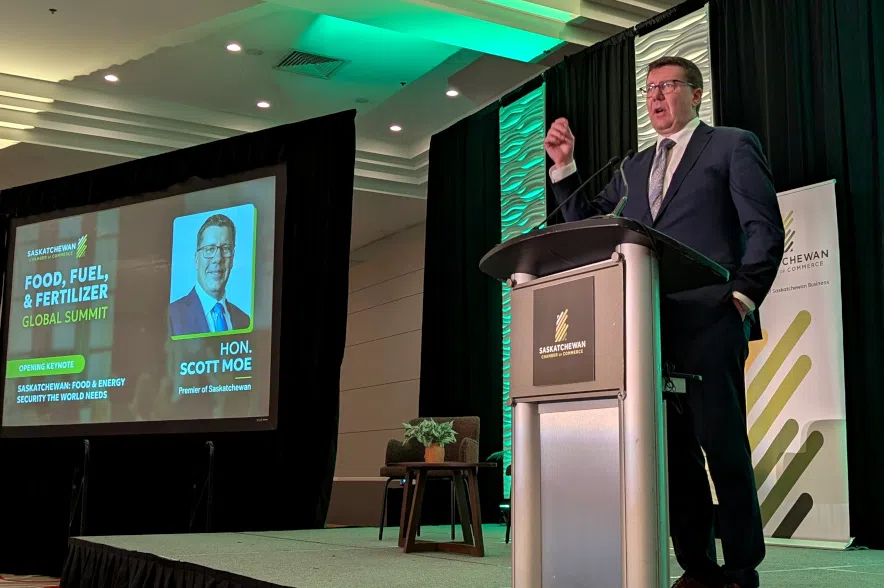Tariffs and the federal election were all top of mind, along with Saskatchewan’s economy, on the first day of the Global Food Fuel and Fertilizer conference in Regina.
Premier Scott Moe kicked off the conference with the keynote address Tuesday morning, talking about the province’s economy and what it has to offer the world.
“This is a great room to have discussions about where Saskatchewan is today in the wealth that we’re creating and the export value that we’re creating, how we’re getting that to market, the current challenges that we’re having, but also the medium to long-term opportunities that we have in this province,” said Moe afterward.
Read More:
- Conexus, Cornerstone and Synergy credit unions recommend merger to members
- Regina police used plane, dog in dangerous driving arrest Sunday
- Nominations open in CAA Saskatchewan’s 2025 Worst Roads Campaign
The premier would like to hear more about Saskatchewan and the prairie provinces on the campaign trail.
“There should be more discussion with respect, not only to the economic contributions that the prairie provinces make to the entirety of Canada, but more discussion on how we’re going to expand the industries that are creating wealth here,” said Moe.
He said when industries set up in Saskatchewan it’s good for Canada and industry across the country, and he’s always asked for a federal government to recognize what the province produces.
Conversations on the campaign trail about the economy and tariffs have mostly revolved around the effects on and relief for workers in Ontario and Quebec, with fewer mentions of steel workers or canola farmers in Saskatchewan.
Canola is a big part of the province’s economy, but the industry is currently being hampered by 100 per cent tariffs from China on canola oil and meal. Moe said his government keeps asking the prime minister, who is also on the campaign trail as the Liberal party leader, to reach out to China.
“That is going to have to happen by either this prime minister or the next in order for us to find a path through those 100 per cent tariffs on canola oil and canola meal,” said Moe.
He said the province itself has been in contact with the Canadian ambassador to China and the Chinese ambassador to Canada and has contacted and written letters to a number of subnational leaders in China.
“Reaching out and requesting to have a phone call with them to ensure that we can state our case with respect to why those tariffs are not only harmful to industries in China but are harmful to the global economy as well,” said Moe.
He said China is the most urgent tariff threat in Saskatchewan.
Moe said his government wants the next federal government to make international relations an ongoing priority instead of just a recent priority.











